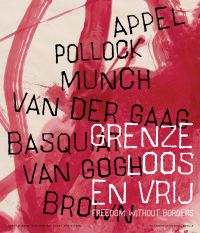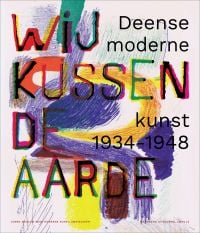On 8 November 2018 it is exactly 70 years ago that the Cobra movement was founded in Paris. Its members were artists and poets from various European countries. The joy of complete spiritual and artistic freedom and spontaneity was their counterbalance to the nightmare of the war. Cobra caused quite an uproar in the Netherlands. The Dutch press spoke of ‘scribble, claptrap and splotches’.
We had non-stop discussions and disagreed on almost all points. But the cooperation was fruitful as long as we were able to keep it up. The point was that we wanted to understand each other in order to agree. This attitude created an inspiring cooperation of an incredibly broad scope.” Asger Jorn, in 1967.
The revolutionary Cobra movement is now entrenched in European art history. Cobra is mainly associated with colourful, expressive-spontaneous painting that continued to have an influence for a long time. With the exhibition, the Cobra Museum in Amstelveen shows that Cobra was much more than that ‘cheerful colourful art movement’ it became to the general public.
The founders had very different ideas about the meaning of Cobra. For some the meaning could be found in Cobra’s contribution to artistic developments, for others in Cobra’s spirit of absolute freedom and for yet others in the collaboration between the members and the cross-pollination between poets and painters. One thing is certain: there was never any unanimity about the meaning of Cobra. Perhaps it is precisely the contradictions and disagreements between its members that determine Cobra’s character, since these give Cobra its vitality.
This exhibition focuses on the diverse, sometimes diametrically opposed perspectives on Cobra. The selection of 90 works and archive material emphasises the period when the movement officially existed (1948-1951), although works from earlier and later dates are also included.

